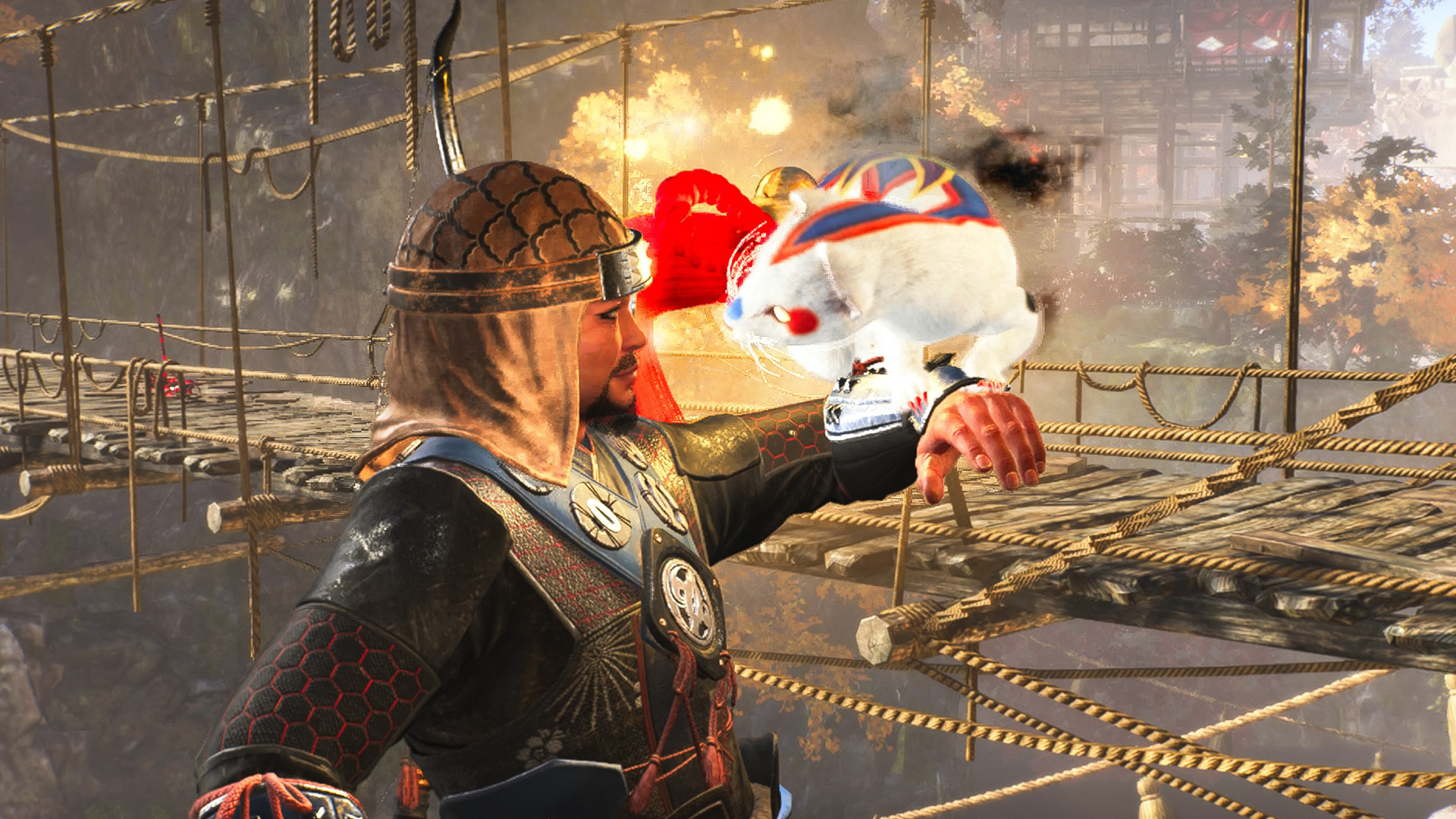Why Ethan Winters is such a wise-ass in Resident Evil Village
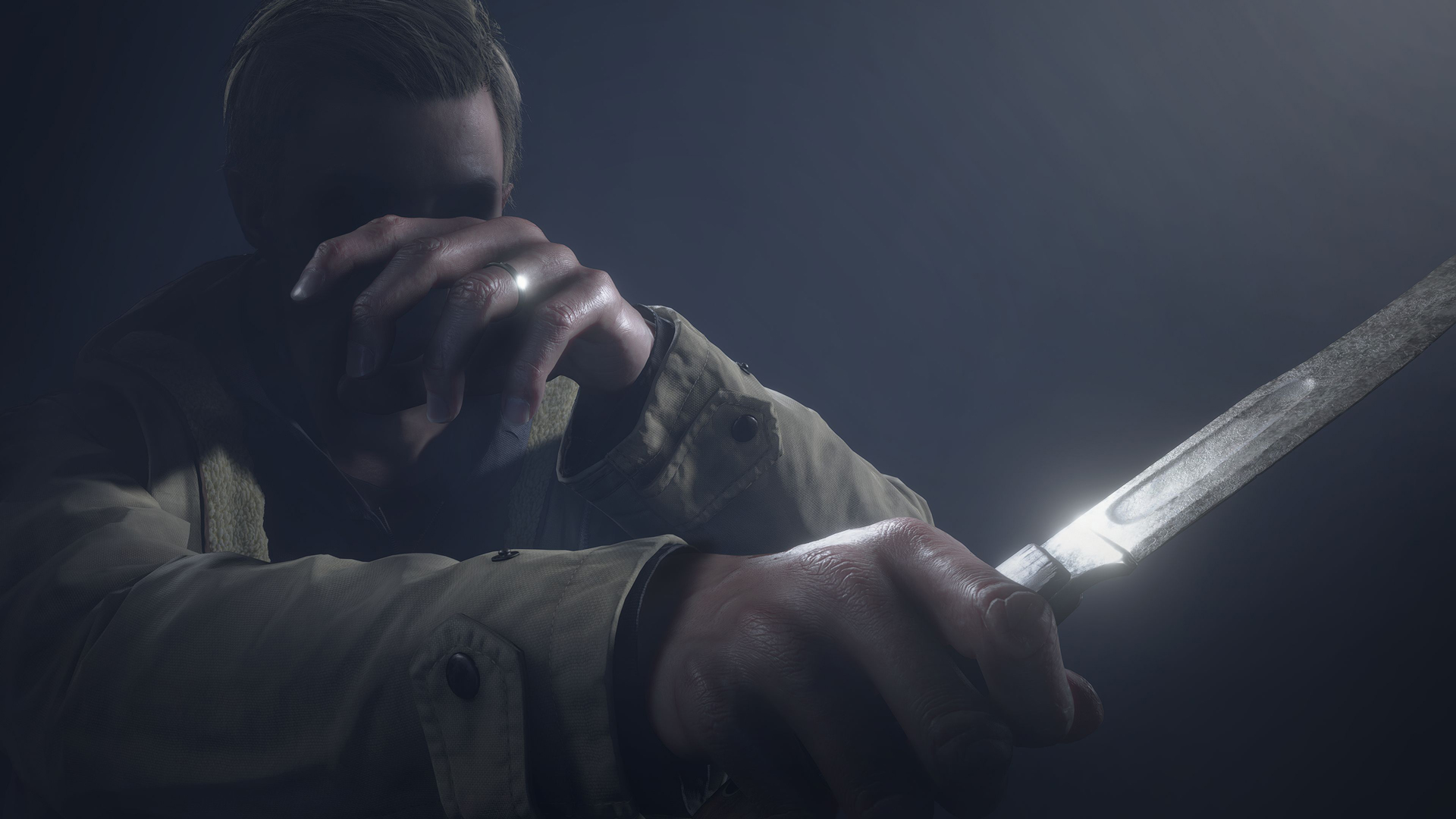
Weekly digests, tales from the communities you love, and more
You are now subscribed
Your newsletter sign-up was successful
Want to add more newsletters?

Every Friday
GamesRadar+
Your weekly update on everything you could ever want to know about the games you already love, games we know you're going to love in the near future, and tales from the communities that surround them.

Every Thursday
GTA 6 O'clock
Our special GTA 6 newsletter, with breaking news, insider info, and rumor analysis from the award-winning GTA 6 O'clock experts.

Every Friday
Knowledge
From the creators of Edge: A weekly videogame industry newsletter with analysis from expert writers, guidance from professionals, and insight into what's on the horizon.

Every Thursday
The Setup
Hardware nerds unite, sign up to our free tech newsletter for a weekly digest of the hottest new tech, the latest gadgets on the test bench, and much more.

Every Wednesday
Switch 2 Spotlight
Sign up to our new Switch 2 newsletter, where we bring you the latest talking points on Nintendo's new console each week, bring you up to date on the news, and recommend what games to play.

Every Saturday
The Watchlist
Subscribe for a weekly digest of the movie and TV news that matters, direct to your inbox. From first-look trailers, interviews, reviews and explainers, we've got you covered.

Once a month
SFX
Get sneak previews, exclusive competitions and details of special events each month!
This look back at Ethan Winters with Resident Evil Village scriptwriter Antony Johnston contains story and scenario spoilers. You have been warned.
Ethan Winters has quite the way with words. Say what you will about the protagonist of Resident Evil Village, but he has this perverse talent for finding the perfect rejoinders to truly precarious encounters. A favorite of mine? It's a simple "Eat shit!" – a punctuation point on a particularly gruelling encounter with a hammer-wielding Lycan, spoken aloud to an emptying room as Urias crumbles to dust before his eyes.
Okay, so Ethan isn't exactly the Sylvia Plath of the Resident Evil world. But he did scoop those two words right out of my mouth – I was barking them at the television just seconds before as I burned through ammunition. Truth be told, I wouldn't want Ethan to be a poet; there's no room for considered thought in the carnival of carnage that is Resident Evil Village. Winters is economical in his confessional narration and consistent in his subdued enthusiasm towards survival. It doesn't matter what he's doing, how poorly he's doing it, or what new and inventive way Capcom finds to torture his limbs, he never lets an opportunity for a quick quip pass him by.
Resident Evil Village scriptwriter Antony Johnston tells me that Ethan's impulse to laugh in the face of unknowable terror is derived from a very human place. "You know who laughs hardest at the darkest, sickest, bad-taste jokes? EMT workers. Cops. Doctors. Soldiers. People who see the worst side of the world, every day. It's a natural coping mechanism, much like being pissed off that the world won't let you have a quiet life."
Facing danger
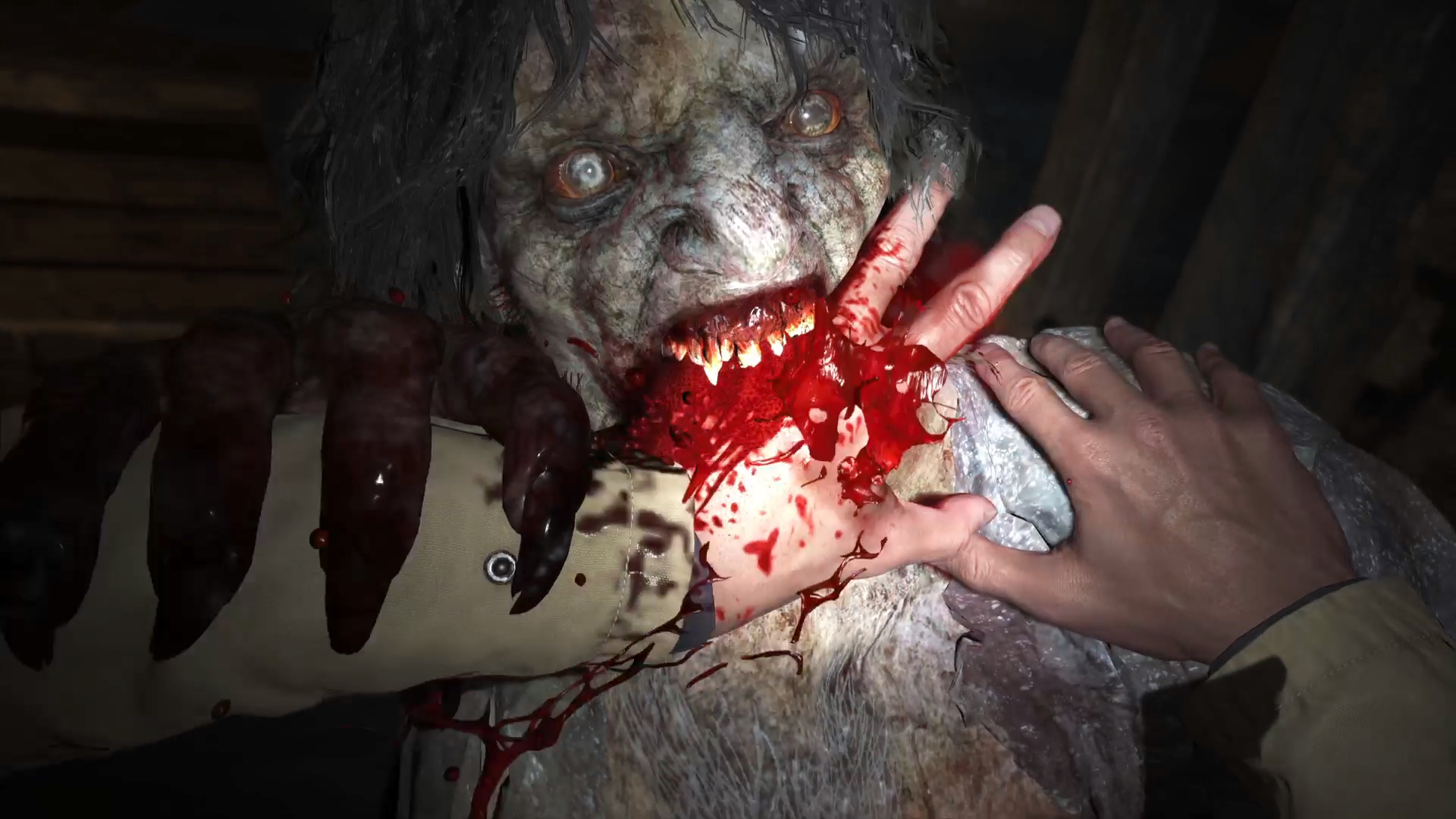
Early on in Resident Evil Village, as Ethan is surveying the wreckage of his quiet life in the hills, recovering from having two of his fingers bitten off by a rampaging werewolf, he utters a telling remake: "Why the fuck is this happening again? Shit!"
Having already survived the horrors of the bayou in Resident Evil 7 (well, sort of…), Ethan begins Resident Evil Village thinking the worst is already behind him. The Baker family is dead, Eveline has been defeated, and the memory of Mia, his wife, running him down with a chainsaw is long forgotten. He has a kid now too, Rose, and that mess with Chris Redfield and the BSAA is over. Until it isn't. "Chris...!? What the hell," Ethan whimpers as the former S.T.A.R.S. operative unloads bullets into his wife and kidnaps his child, setting the events of Village in motion.
Capcom tries to walk this tightrope in Village, as it attempts to both inject Ethan with more personality after a somewhat muted performance in Biohazard and to give us, as players, a voice in the experience – how would we, civilians, react to being thrust into a world that's largely been seen from the perspective of highly trained, battle-hardened specialists adept at dealing with bio-terrorism and threats to national security. You know what, I'd probably be pretty blasé about the entire situation too – what else is there to do but embrace the nightmare and make a few jokes along the way.
Weekly digests, tales from the communities you love, and more
I said something similar to Johnston, who served as scriptwriter of the original Dead Space and author The Coldest City, the graphic novel which was later adapted into the 2017 Charlize Theron vehicle Atomic Blonde. I joked that of all the protagonists to headline Resident Evil games over the past 25 years, Ethan often feels like he's the first to truly loathe the experience. His response: "Well, wouldn't you?"
"This is exactly what I wanted to get across. There's some of that attitude in Resident Evil 7, but I was encouraged to go further in Village and really ground Ethan as a guy who just wants a quiet, ordinary life – he is actively pissed off that he can't have it. He's not Chris Redfield. He doesn't want to be a hero, or wade through a village of lycans, or in fact be anywhere near that place, if he had a choice. But he doesn't."
Quip to survive
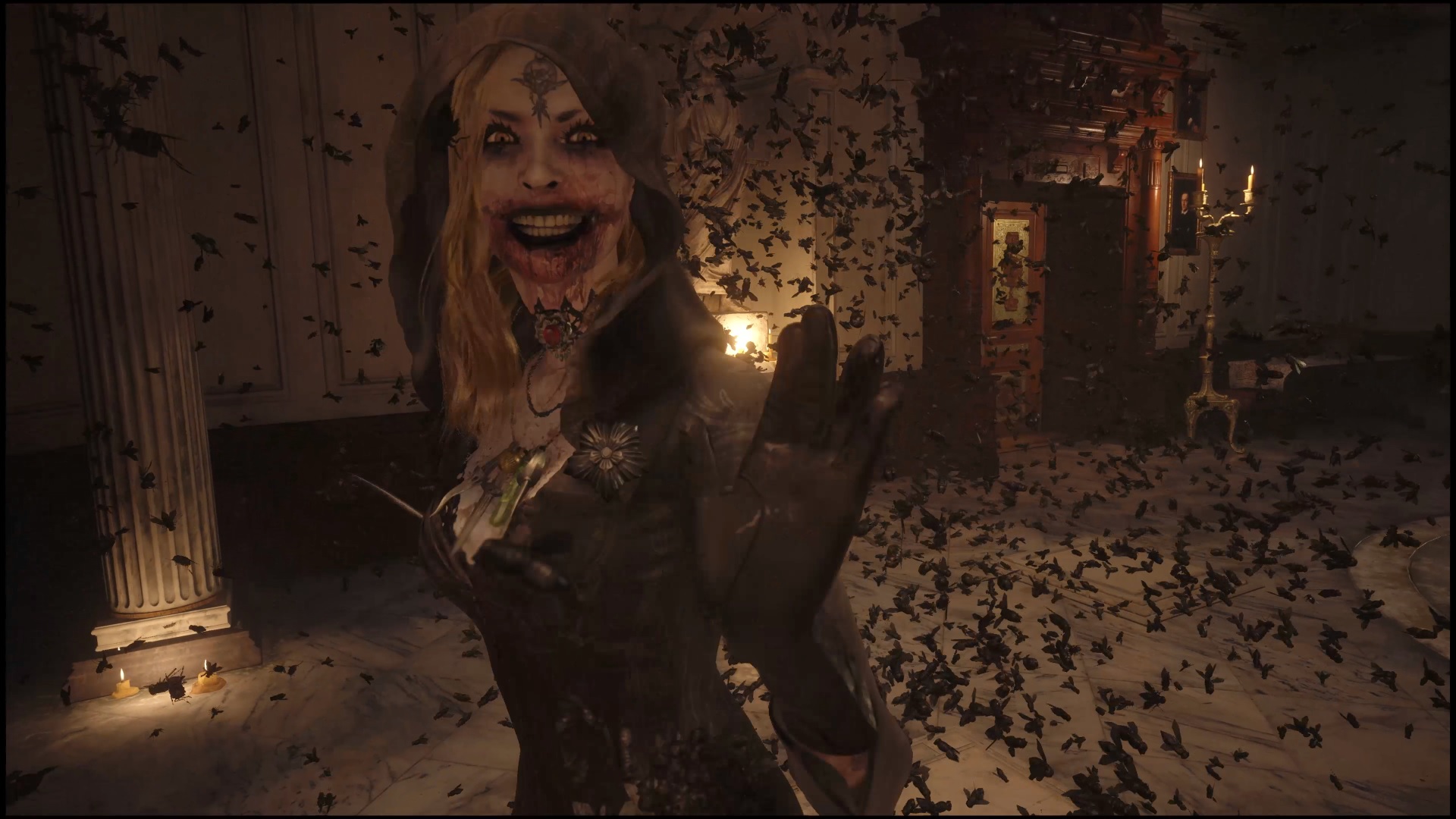
Of course, some players have called into question Ethan's capacity to understand the precarious situations he constantly finds himself in, and his seeming inability to learn from any of them. There's only so many times you can have your limbs sliced off before you start taking additional precautions, right? Well, maybe not. Johnston tells me that Ethan is driven primarily by "that pissed-off-o-meter" he mentioned before, which could perhaps have a blinding effect.
The scriptwriter adds that "in Resident Evil 7, Ethan was bewildered and frightened; in Village he's bewildered, frightened, and angry because he knows this shouldn't be his problem. Ethan doesn't want to understand the world, beyond however much he needs to know to get his daughter back. He's not interested in BSAA, or the T-virus, or some dude called Wesker. He doesn't care… of course, he should care."
That he should. From his earliest push into the village ("What kind of sick medieval shit is this?") to his first brush with the four monsters arguing over his death sentence ("Hey, don't I get a say in this?"), his failure to save a friend after hatching an ill-advised escape from a fiery building ("God dammit! Why is everyone dying on me?"), to his fights with an ancient mutating creature ("Looks like your outside matches your inside now, psycho witch" – a favorite of mine), Ethan responds to each of these absurdist situations with the same tenor and brashness that I'd like to think I could summon too. In truth, I wouldn't have survived for more than a few minutes were Village real, but spending a few hours crying in fear on the Duke's shoulder is not the sort of power fantasy that fuels a multi-million dollar selling series, now is it?
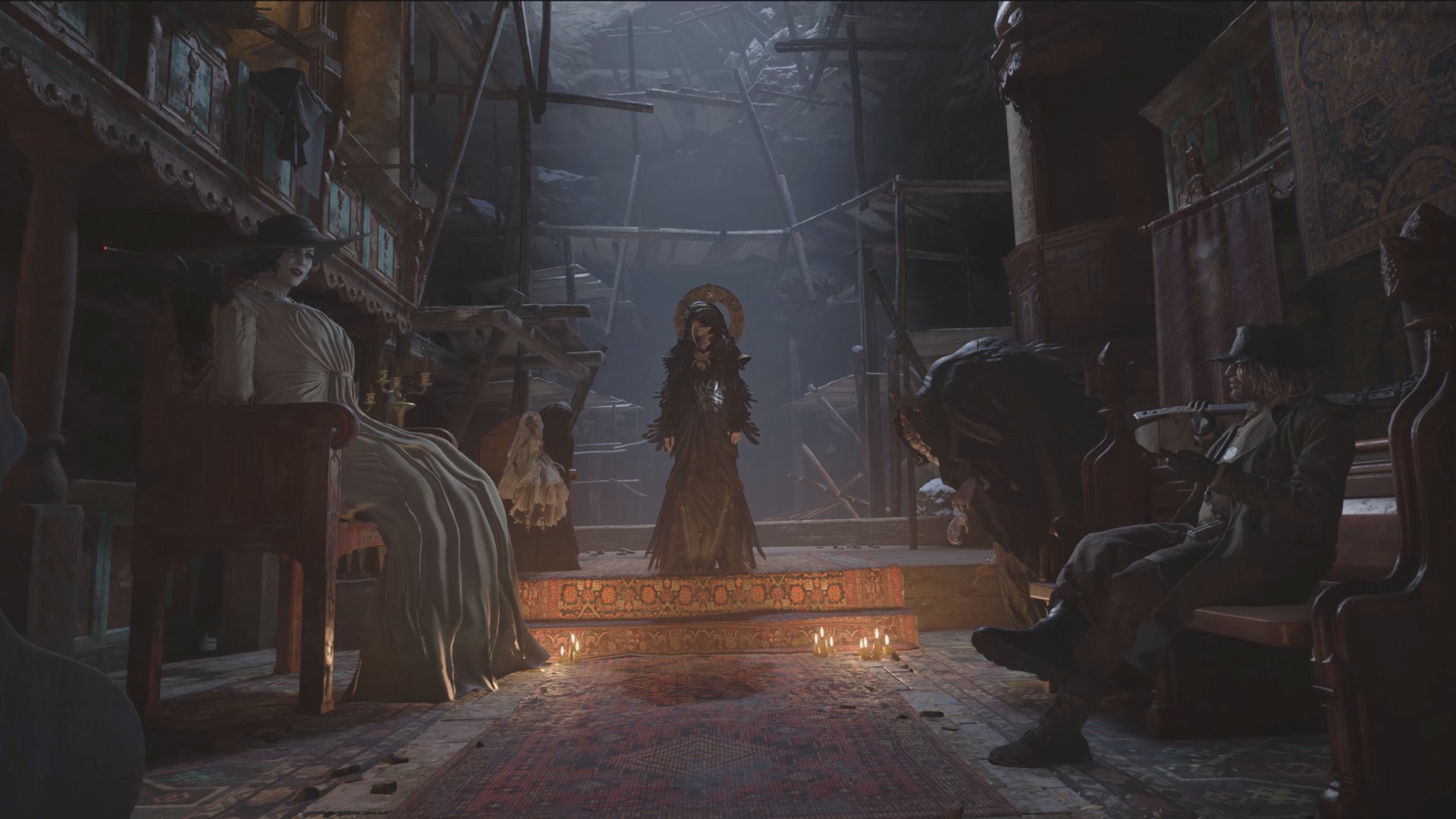
"It's a balancing act between giving Ethan his own personality, but also helping the player imagine that it could be them, reacting in the same way."
Antony Johnston, scriptwriter
Ultimately, for Johnston and the narrative team at Capcom, the challenge the studio had to grapple with was the fact that Ethan doesn't have a face, but he does have a voice. Because of the shift in camera perspective from third to first, our connection to the world of Village is effectively the same as Ethan's – through his unblinking eyes and those damned hands of his, the ones that seem to endure such unrelenting torture. Johnston tells me that the need to keep Ethan an empty vessel for us to fill with our own hopes, fears, and reactions impacted his approach to writing "to an extent", but it always comes back to this idea of giving voice to a person who is so massively out of their depth that all they can do is go along for the ride.
"This relates to that feeling of not wanting to be there. Like I said, wouldn't you feel that way too? That's a universal feeling I latched on to, because we can all sympathise with being forced to do something we'd really rather not – especially when the situation is actively, lethally dangerous," he says. "So it's a balancing act between giving Ethan his own personality but also helping the player imagine that it could be them, reacting in the same way."
Here's what I can say with some degree of certainty. If a seven-feet tall vampire, with an exceptional fashion sense and exceptionally bad taste in wine, sliced off my hand and my only reaction was only a muted "Aah! Shit!", then I think I'd be doing alright. Then again, whether I'd have the presence of mind to pick up the decapitated limb, hold it to the stump, pour magic water over it, and respond to the miraculous healing with little more than a pithy "Good" remains to be seen. After all, as Ethan learned the hard way in Resident Evil Village, there's only so much punishment one person can take before the crumble.
For more on this series, why not check out our ultimate guide to the Resident Evil games.
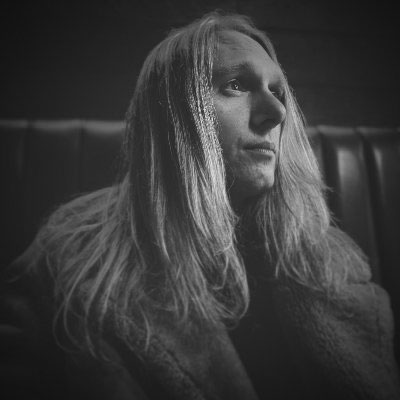
Josh West is Editor-in-Chief of GamesRadar+. He has over 18 years of experience in both online and print journalism, and was awarded a BA (Hons) in Journalism and Feature Writing. Josh has contributed to world-leading gaming, entertainment, tech, music, and comics brands, including games™, Edge, Retro Gamer, SFX, 3D Artist, Metal Hammer, and Newsarama. In addition, Josh has edited and written books for Hachette and Scholastic, and worked across the Future Games Show as an Assistant Producer. He specializes in video games and entertainment coverage, and has provided expert comment for outlets like the BBC and ITV. In his spare time, Josh likes to play FPS games and RPGs, practice the bass guitar, and reminisce about the film and TV sets he worked on as a child actor.
